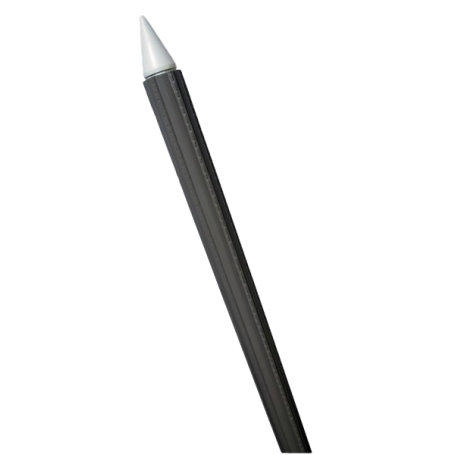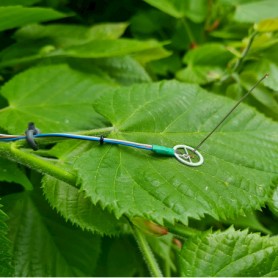Wireless Compost temperature sensor : KOU10 | Senzemo
Senstick is an award-winning LoRaWAN sensor. It is designed to operate autonomously for up to 7 years in harsh environments. It is suitable for wide variety of applications where reliable and case specific solution is needed. KOU10 is a cost-effective compost temperature sensor.
The rate at which composting occurs depends on physical as well as chemical factors. The temperature of a compost pile is primarily a product of the metabolic heat being generated in the pile from microbial activity. Compost has to be monitored throughout the whole process, requiring the employment of specialized personnel. Temperatures above 65 °C, will burn valuable carbons and turn them into ‘invaluable ashes’.
Who is it for? Waste Management Site Managers, Compost Managers, Grain, and Soil/Mulch Managers.
- Replaces manned personnel.
- Monitors grain storage temperature.
- Compost, grain and mulch temperature measurements.
Key features
- Harsh environments
- Rigidized housing
- Easy installation
- Motion detection
- NFC configuration
Applications
- Compost temperature
- Soil temperature
- Mulch temperature
Made in EU
Quality is the first focus of Senzemo. The sensors, aside from standing out by their design, are sourced and assembled in European Union, and produced using quality materials, which makes them much more reliable and precise.
They are built to last for a long time and if you don’t take into account the batteries, the sensors could last for decades. On Lorawan they can work up to 50km away from the gateway and offer easy assembling so that everyone, integrators, or end clients can have a quality experience with them.
- Reliable.
- Built to last.
- For a long time.
Sensor in action
Compost has to be monitored throughout the whole process. The rate at which composting occurs depends on physical and chemical factors. Temperatures above 65 °C burn carbons and turn into ‘invaluable ashes’. Producing high-quality compost requires the employment of specialized personnel. While temperature readings seem simple, it takes a lot of time for a worker to constanty stuff the temperature probes into compost piles.
The composting procedure is divided into two main phases, the decomposition and maturation phases. During these two subphases, the material’s moisture must be kept between 50% and 60%. Moisture decrease below 50% slows down or even stops the degradation process since, in order for the nutrients to be consumed by micro-organisms, they must be in the solution. Moisture increase above 60% renders the process anaerobic and results in contamination of the procedure. The overall duration of the 1st phase varies, from 15 to 30 days.














